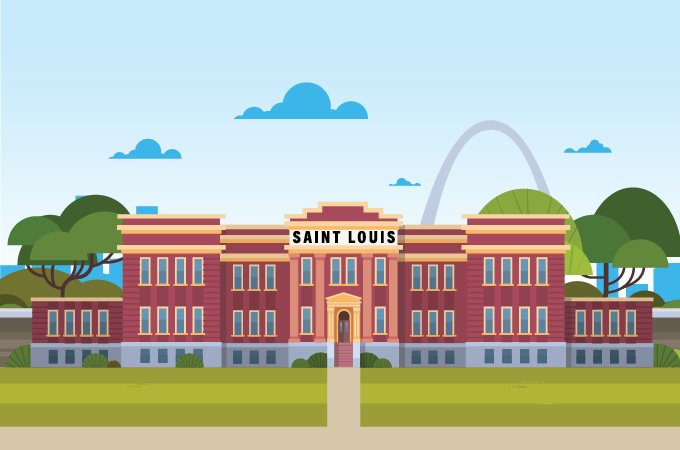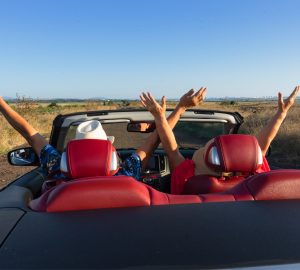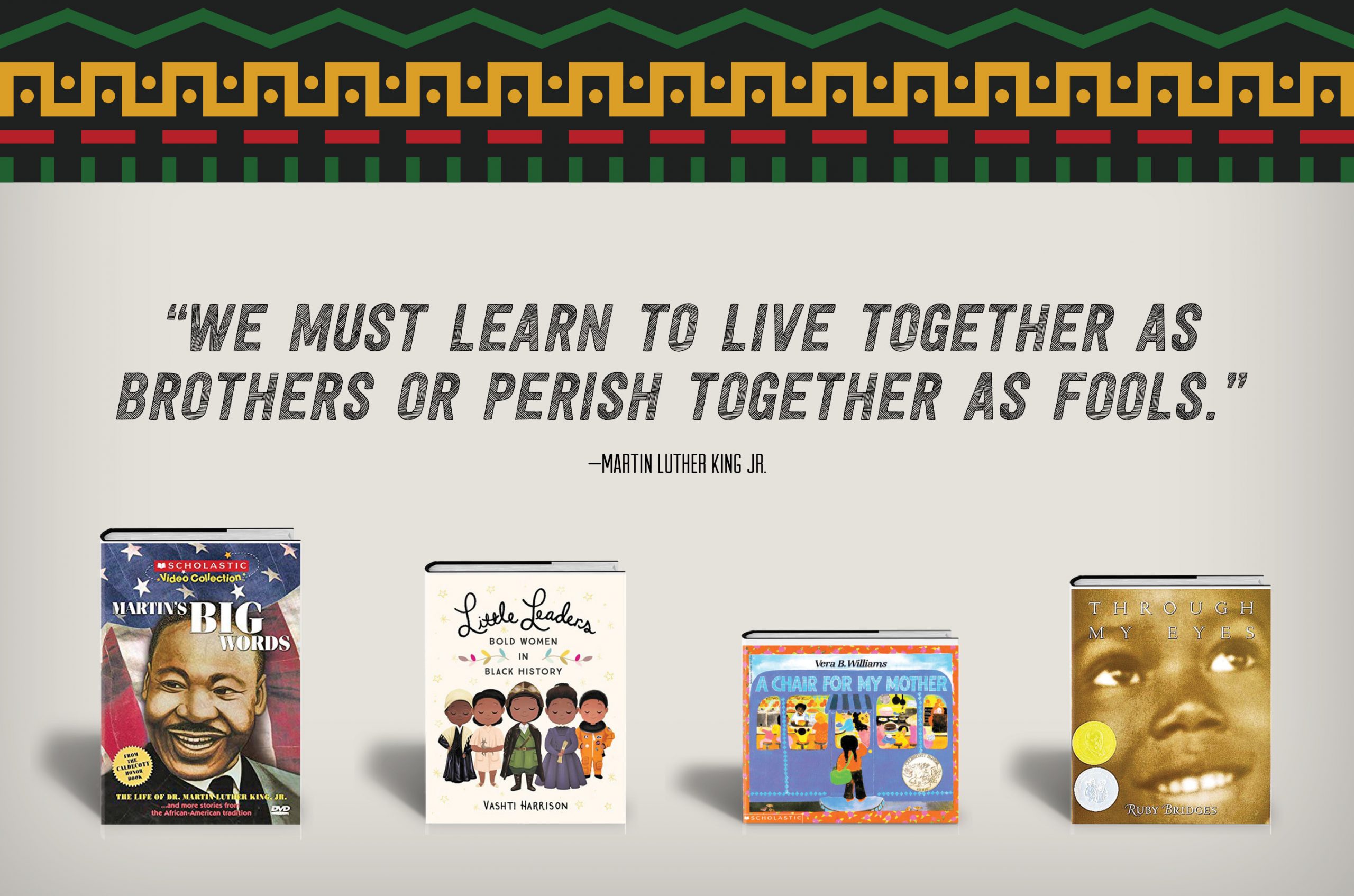It’s nearly impossible to quantify the impact influential teachers have on their students. They inspire new passions, foster personal growth and offer critical support, and that just scratches the surface. We reached out to local schools to learn about some amazing leaders who have dedicated themselves to education.
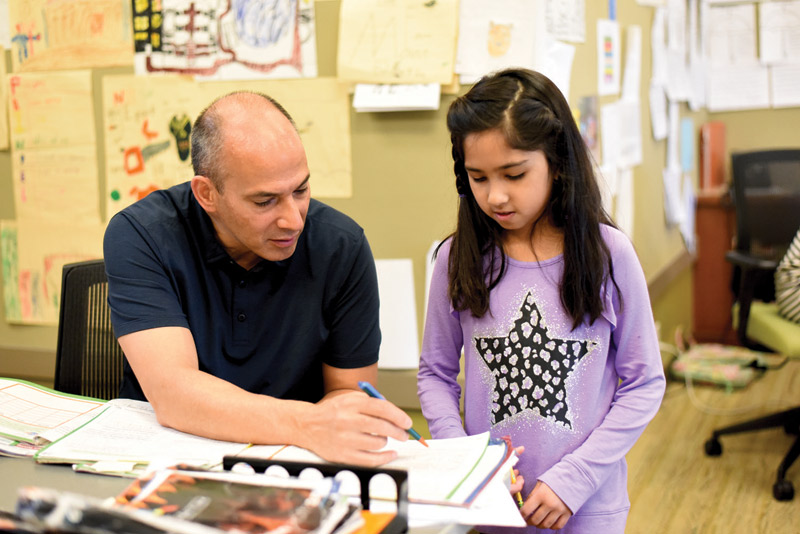
miguel figueras » wilson school
Miguel Figueras has taught second grade at The Wilson School since 1999, but he’s been motivating kids and teens for even longer as a water polo coach. He’s club director for St. Louis Area Polo and previously served as head coach at De Smet Jesuit High School. “I’ve always been drawn to the sport, and I enjoy passing my passion onto others,” he says. “Coaching and teaching were a natural fit when choosing a career path; they go hand and hand.”
In 2013, Figueras began volunteering with the USA Water Polo Midwest Olympic Development Program after his son joined. The program works with top athletes in the region to prepare them for the national team. After working primarily with young players from Chicago and St. Louis, he was asked to serve as an assistant coach on the national level. “I stayed on for two years,” he says. “I got to see how the highest level of athlete prepares. It was very eye-opening.” Figueras still is involved with the national team, and in 2018, he traveled with players to Budapest for a competition. He also currently serves as head coach for the girls’ Midwest program.
“Working with the Olympic Development Program means a lot of travel, and I’m very lucky to have the support of my family and Wilson to be able to do this,” Figueras notes. “Whether it’s in the pool or the classroom, it’s inspiring to be able to bring back my coaching experiences and apply them to other areas.”
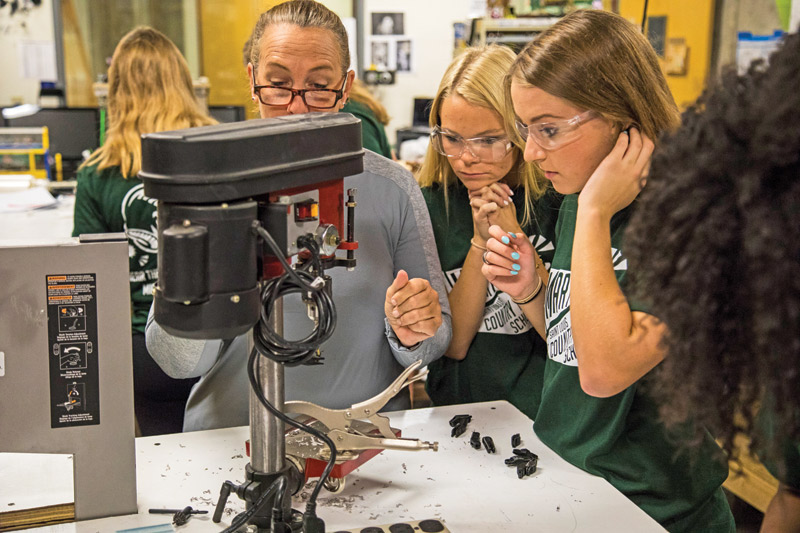
stacey morgan » micds
Stacey Morgan encourages her students to lend a hand to those in need—literally. As part of her kinesiology class, students build robotic hands and send them to e-NABLE, a global network of volunteers who provide free prosthetic limbs to people in need of an assistive device. “I believe there is deeper learning when students can put themselves in another person’s shoes,” she says. “It helps them look at things from a different perspective.”
Having taught for 26 years (25 of them at MICDS), Morgan understands the value of making her classes engaging through real-world application. “Kids will remember experiences and activities more than they will me lecturing them,” she explains. “They also tend to create a deeper connection to the material this way.” Her classes, which also include sports medicine and anatomy and physiology, incorporate real case studies, diagnostic modeling and guest speakers from various health care professions.
Last year, Morgan was awarded second place for Saint Louis Science Center’s Loeb Prize for Excellence in Teaching Science and Mathematics, and despite her classes being elective, most students choose to take all three. “I have a responsibility to make students’ experiences in my classes positive,” she says. “I want them to leave with a better understanding of how the body works and have the opportunity to apply these concepts to the world around them.”
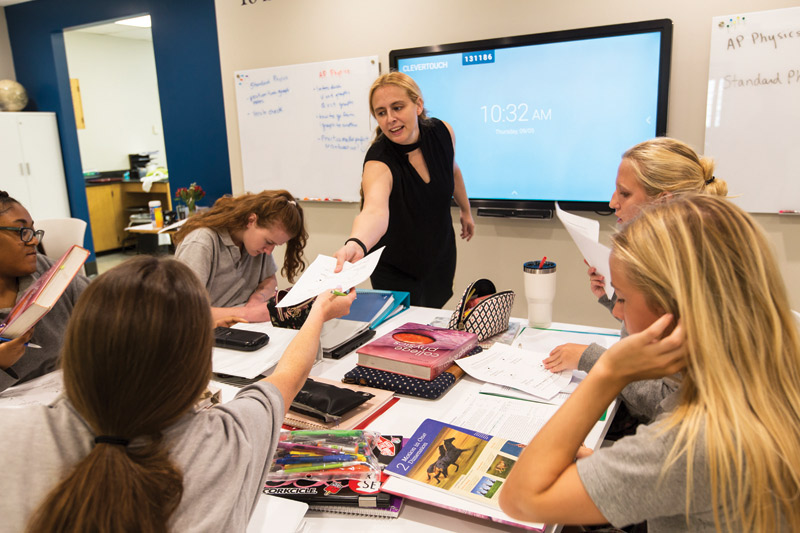
kristen erickson » villa duchesne & oak hill school
For Kristen Erickson, choosing to teach at an all-girls school was an easy call. “Some of the most inspiring professors I had at university were women,” she says. “I was lucky to have them as role models because of the shortage of women in physics. I hope that I can provide my students with a vision of who they can be and what they can achieve in STEM.” With a Ph.D. in astrophysics, Erickson has taught physics and engineering at Villa Duchesne for six years.
Last year, she found out she had cancer. Before she learned the course of her treatment, Erickson kept the initial diagnosis from her students, knowing the news could be detrimental to their learning. When she finally told them, she was blown away by the kindness and support shown by the entire school community. “My AP Physics students made me cards and care packages, and coworkers covered classes for me while I was recovering,” she recalls. “My oldest son attends Oak Hill, and my youngest is in our daycare. I was very worried about how they would cope, but the whole school really came together for them.”
Erickson returned the kindnesses she was shown by continuing to work while she was recovering from surgery. She used Skype to teach classes and check in with students. “Teaching is about forming relationships among students, teachers and parents, and all relationships come with responsibilities,” she says. “Even though I could only teach some days and it had to be done remotely, I felt it was my responsibility to the relationships I had built.”





